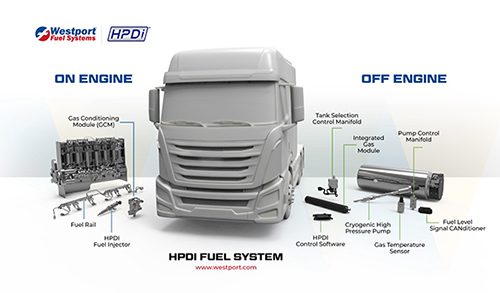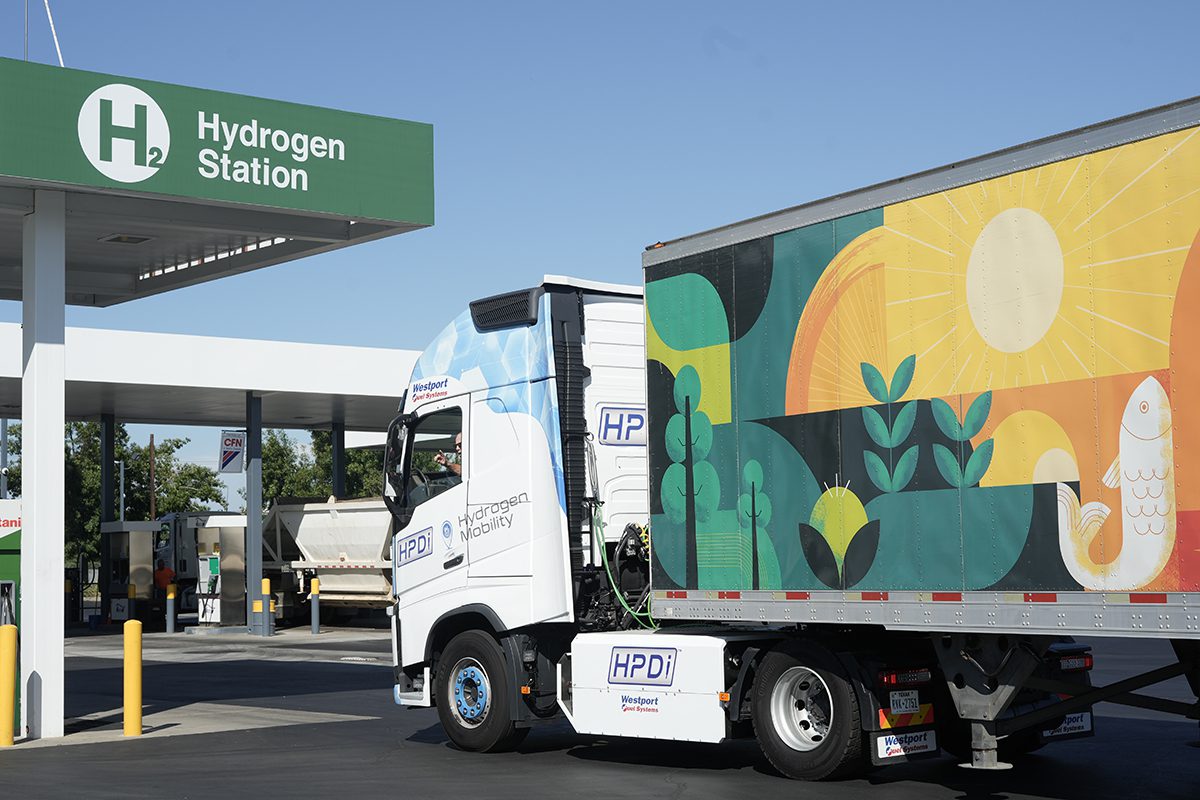As overall concern for climate change continues to grow and increasingly stringent environmental regulations go into effect, commercial fleets are assessing market-ready solutions that will help them achieve carbon neutrality across their wide-ranging vehicle applications. To that end, hydrogen and hydrogen internal combustion engines (ICE) are receiving a good deal of attention — understandably so.
Hydrogen, the most abundant element on the planet and a carbon-free fuel, is efficiently produced from water through the process of electrolysis. It is being touted as one of the quickest paths to reduced emissions and for its potential to play a key role in achieving global, economy-wide decarbonization. So much so that in addition to private capital investments during the last several years, more and more legislative programs are being put in place to help support efforts in catalyzing hydrogen use. Specifically, programs that will help facilitate hydrogen’s production, storage, transportation, and end-level use, and more importantly for commercial transportation, the establishment of a network of hydrogen fueling stations that will support widespread use in sectors that will be challenging to electrify, such as long-haul trucking.

Image: Westport
Westport’s H2 HPDI gives new life to the internal combustion engine.
Why Hydrogen IC Engines?
There are many similarities between the internal combustion engine running diesel and the hydrogen ICE, making them a comfortable transition for OEMs and fleets alike.
- An internal combustion engine burns hydrogen in much the same way it burns diesel
- The range and refueling times are comparable
- The ICE performs best at consistent high loads with either diesel or hydrogen making it the ideal solution for long-haul applications
- Diesel and hydrogen engines share similar componentry creating scale benefits
The above outlines the viability of transitioning to hydrogen ICE from an operational and economic standpoint. Other key motivators include that for OEMs, hydrogen engines offer ease of adaptability in heavy-duty applications by utilizing existing vehicle architectures. For fleets, they are a known technology in operation, troubleshooting, maintenance, servicing and drivability, all offering a high level of familiarity. Moreover, for both OEMs and fleets, the existing and established ICE supply chain can be leveraged efficiently.
By leveraging existing technologies and supply chains, the commercial transportation industry at large can take comfort that the time-tested, reliable ICE can live on with new fuel and new purpose.
Big Solution. Small Change.
H2 HPDI, or High Pressure Direct Injection, provides complete injector “tip-to-tank” OEM solutions that allow the same internal combustion engines that are in fleets now, the ability to shift the system to run on hydrogen instead of diesel. The system, when fueled with hydrogen, offers more power and torque than diesel while dramatically reducing emissions. Westport’s H2 HPDI fuel system provides the following benefits:
- Up to 20% more power than diesel
- Up to 18% more torque than diesel
- Near zero CO2 emissions
- Preserves existing diesel engine architecture
- Preserves existing engine manufacturing infrastructure and investment
- Lowest cost to achieve CO2 compliance
H2 HPDI is the most cost-effective way to reduce CO2 emissions in long-haul trucking and other high-load long-haul applications. The system can utilize existing manufacturing infrastructure, with reduced capital investments, thus expediting time to market. The rapid scaling of production means H2 HPDI can quickly be deployed, further stimulating the demand for hydrogen and accelerating the reduction of cumulative GHG emissions.
Westport Fuel Systems is a leading supplier of advanced fuel delivery components and systems for clean, low-carbon fuels such as natural gas, renewable natural gas, propane, and hydrogen to the global transportation industry. To learn more about our technologies, visit www.westport.com.



